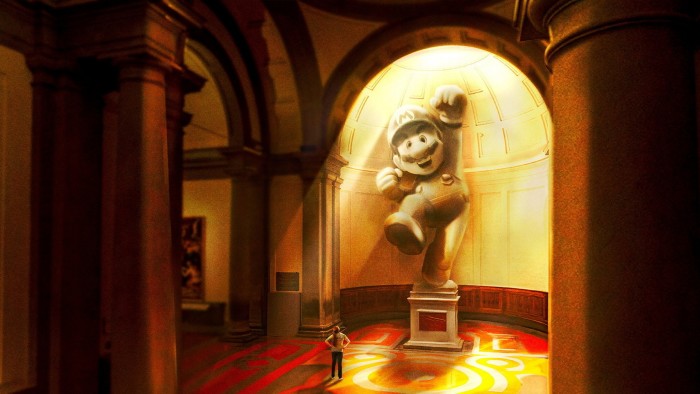Unlock the Editor’s Digest for free
Roula Khalaf, Editor of the FT, selects her favourite stories in this weekly newsletter.
The release of the Nintendo Switch 2 (the imaginatively titled follow-up to 2017’s games console of the same name) is a big deal in a lot of ways. Its record-breaking sales are an endorsement of Nintendo’s insight, embodied in the original Switch, that the days in which ever-fancier cutting-edge hardware was the way to win the “console wars” are over.
Nintendo’s rivals, Sony and Microsoft, have long pushed the limits of what designing more and more powerful systems will do to attract customers. And both now appear to have reached them and face a race to catch up.
The Nintendo Switch 2’s success is an important moment in the life of the games industry. But more significantly, it is an important moment in the cultural and political life of the planet. Gaming enjoys a curious place in global culture. On the one hand, it is economically dominant, the biggest and most influential of all the cultural pastimes. On the other, it is continually treated and spoken about as if it were a passing fad. Even some people who do it every day are in denial about it — almost daily on social media I will see someone who sneers at video games while devouring the output of the New York Times’ games section.
Look at history, and you will see that our passion for gaming, in one form or another, is as old and enduring as our fondness for gold. I would put my money on almost every passion in the modern world coming to an end before I would bet on us no longer making time for a game. But too many people in business, and especially in politics, still treat gaming as something to be dismissed or ignored. Sometimes, gaming’s defenders start talking about the pinnacles of the genre, the titles that say deep and profound things about the human condition. But the reason we ignore gaming at our peril isn’t because Suzerain, say, teaches us something fundamental about the art of politics (although it does). The mass market titles matter to our understanding of the modern world, too.
Compare it to the case of Charles Dickens. Yes, Our Mutual Friend is a work of enduring literary brilliance. But Dickens matters because reading his work tells us something about the values and interests of Victorian society. Even his lesser work has value because the mere fact that people couldn’t wait to buy The Old Curiosity Shop tells us something about a now lost society. Someone wanting to shape and understand opinion in Dickens’ time would have done well to study all his works, and that of his now-forgotten contemporaries writing less well in a similar vein.
It’s not a coincidence that the politicians who have understood this the quickest are the ones who are proving most adept at navigating the 21st century. Several pollsters are improving their accuracy by polling directly within the large multiplayer video games, reaching people, largely young men, who vote intermittently but who have been overlooked by the pollsters using conventional methods.
Steve Bannon, Donald Trump’s former chief strategist, saw the political power of disaffected gamers first hand during his time working in the video games business. Mohammed bin Salman’s vision for Saudi Arabia includes the games industry. In television and film, video game adaptations have filled cinemas while other blockbusters have faltered. And canny businesses now use games to train and motivate their staff.
And then consider the case of Japan. An outsized reason for the country’s stature among politically-minded wonks is that large numbers of people, particularly men under 40 in the rich world, have, at some point, played and enjoyed a video game designed, produced and written there.
This is not to say that the influence of video games is wholly positive: one reason, I think, for the emergence in the west of a slightly naive account of what drives economic growth is that a generation of policy wonks grew up playing games in which, if you simply push the button marked “invest” or build the right infrastructure, you are rewarded, reliably, at every turn. If you grew up playing SimCity 4, for example, it is easy to kid yourself that drawing a square and calling it a “business district” is the beginning and the end of the story.
But it is the case that anyone who doesn’t understand what motivates gamers — even, or perhaps especially, those playing the trashiest mass-market games available — is going to struggle properly to understand what motivates and shapes the political, social and commercial decisions of large numbers of people in the rich world. Even if today’s politicians don’t plan on buying a Nintendo Switch 2, their future prospects in part will hinge on understanding the millions who do.




